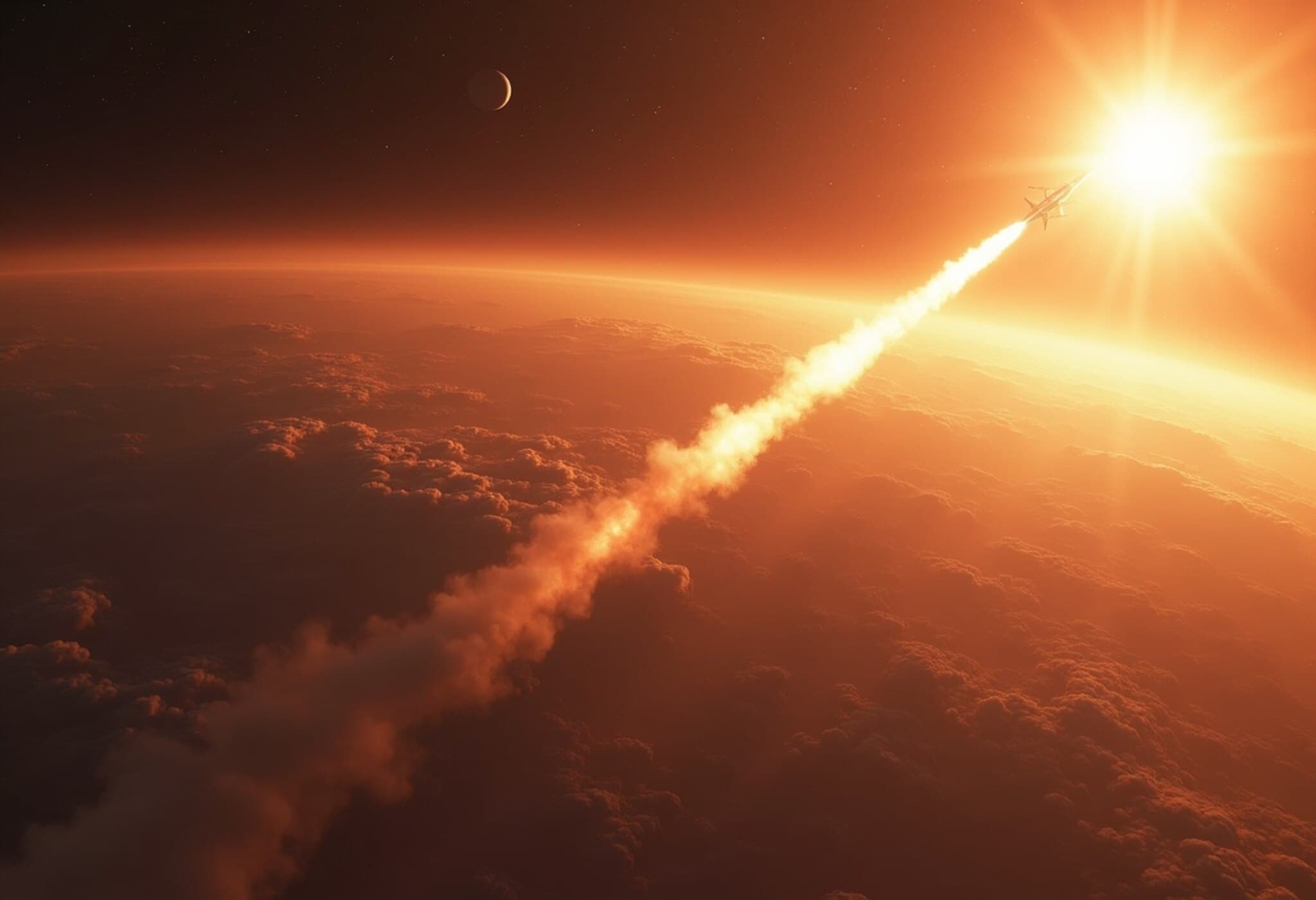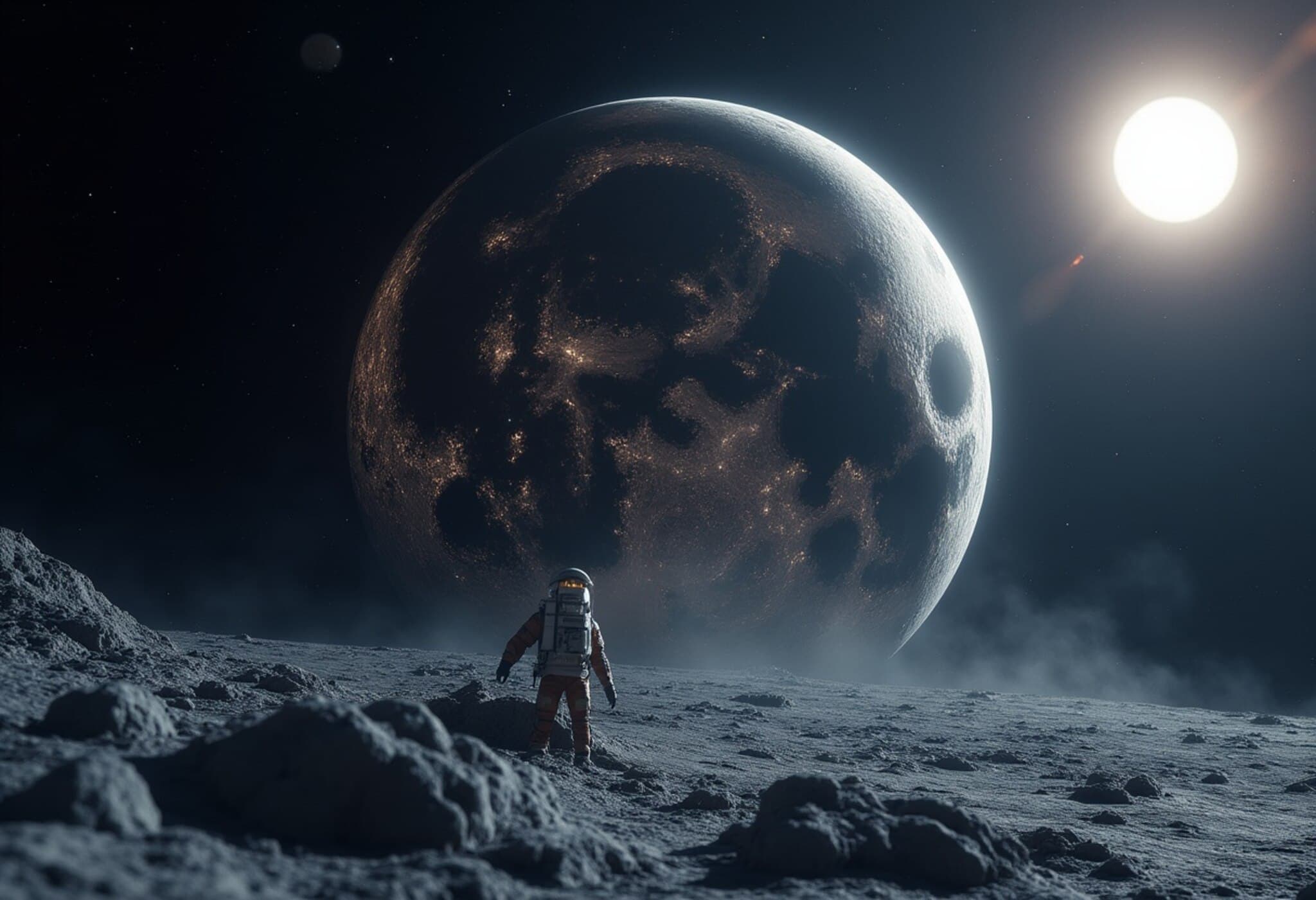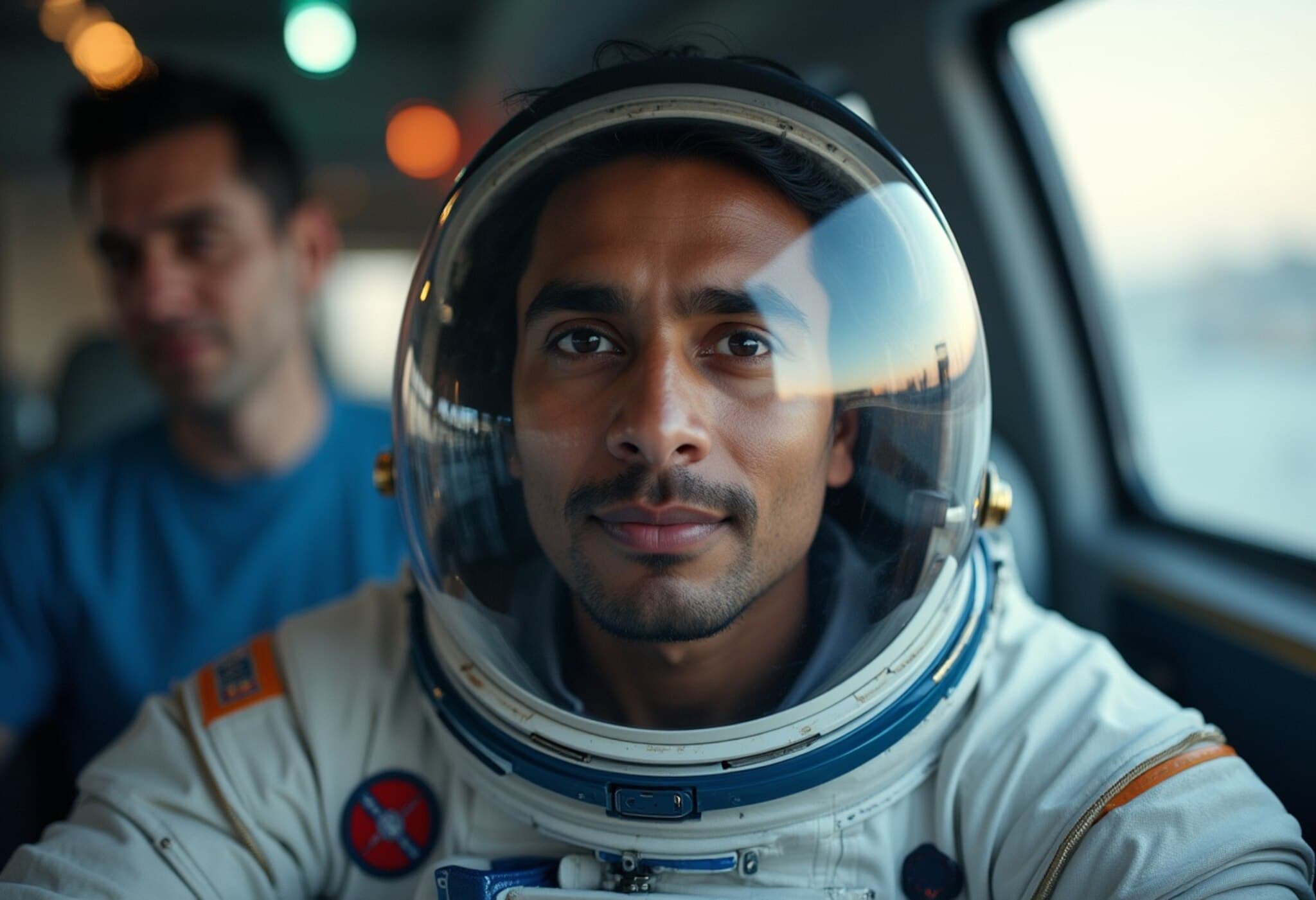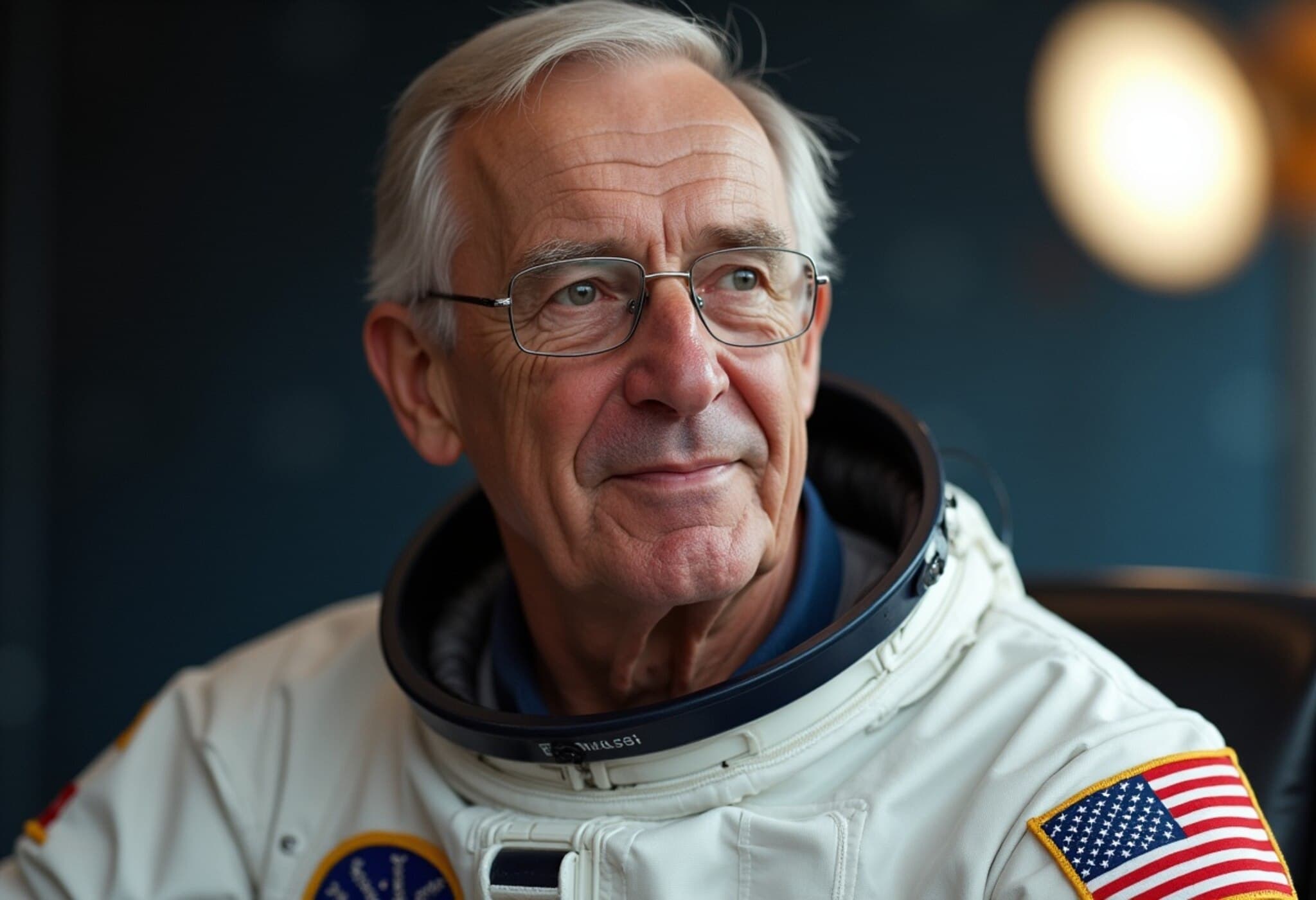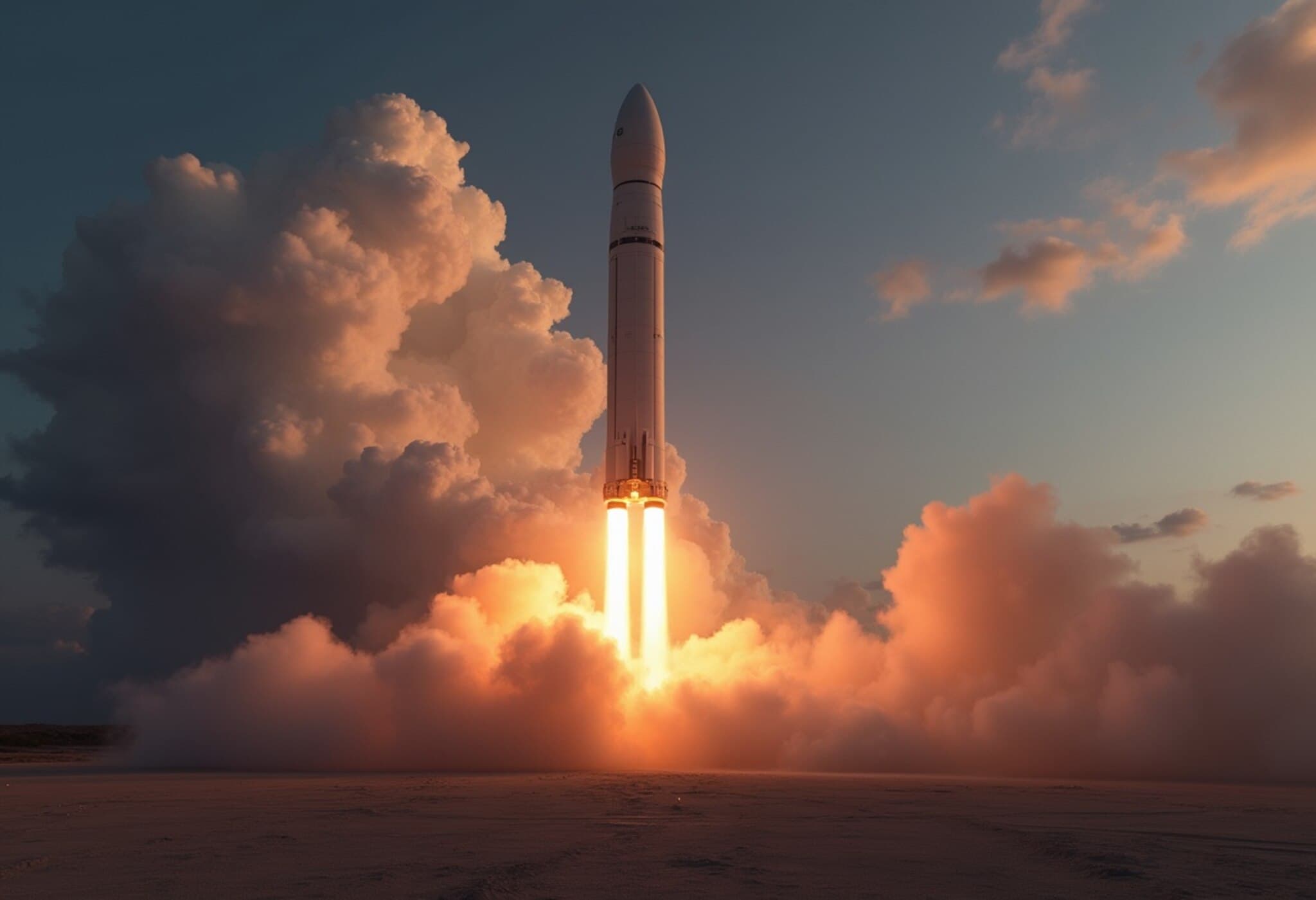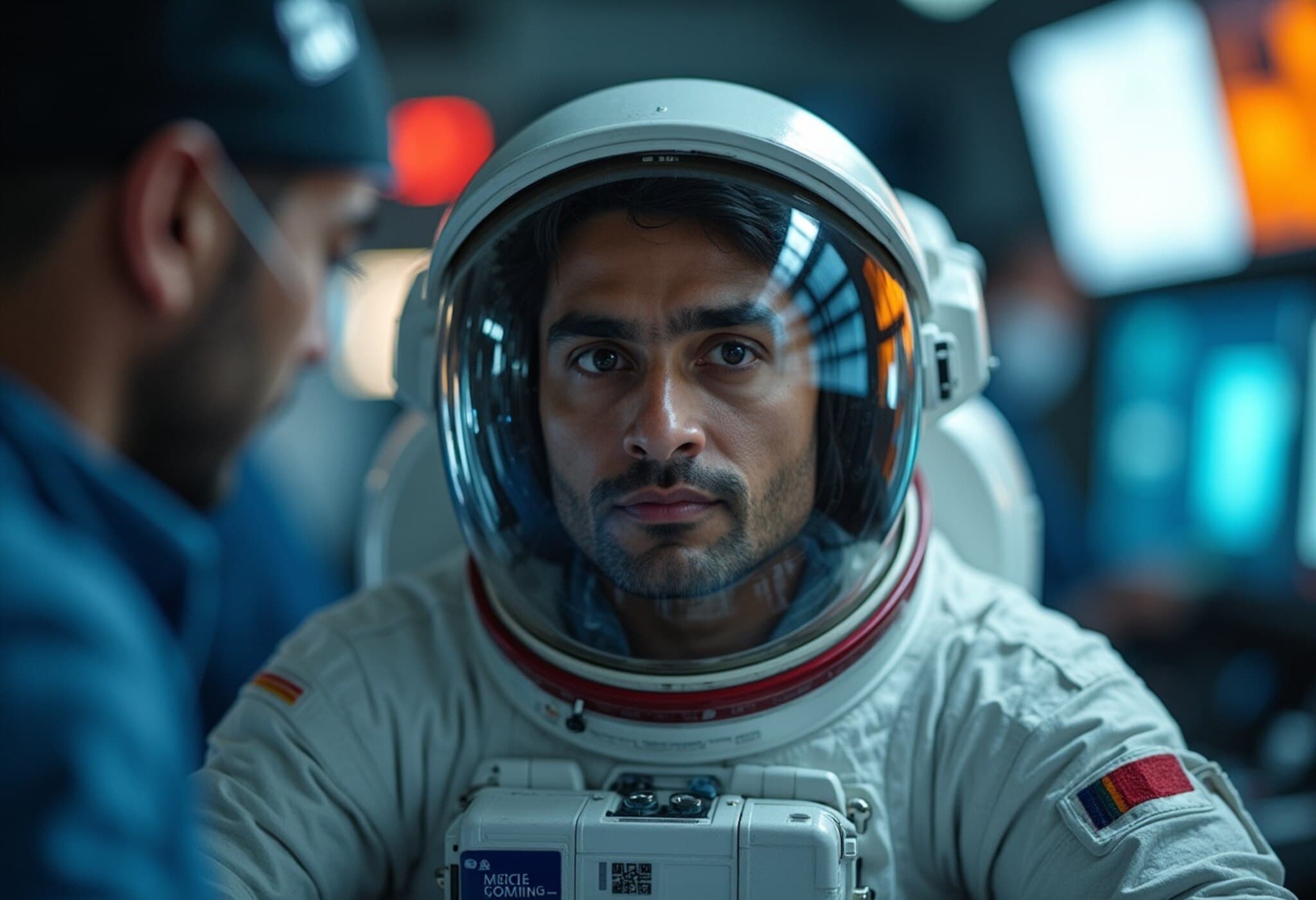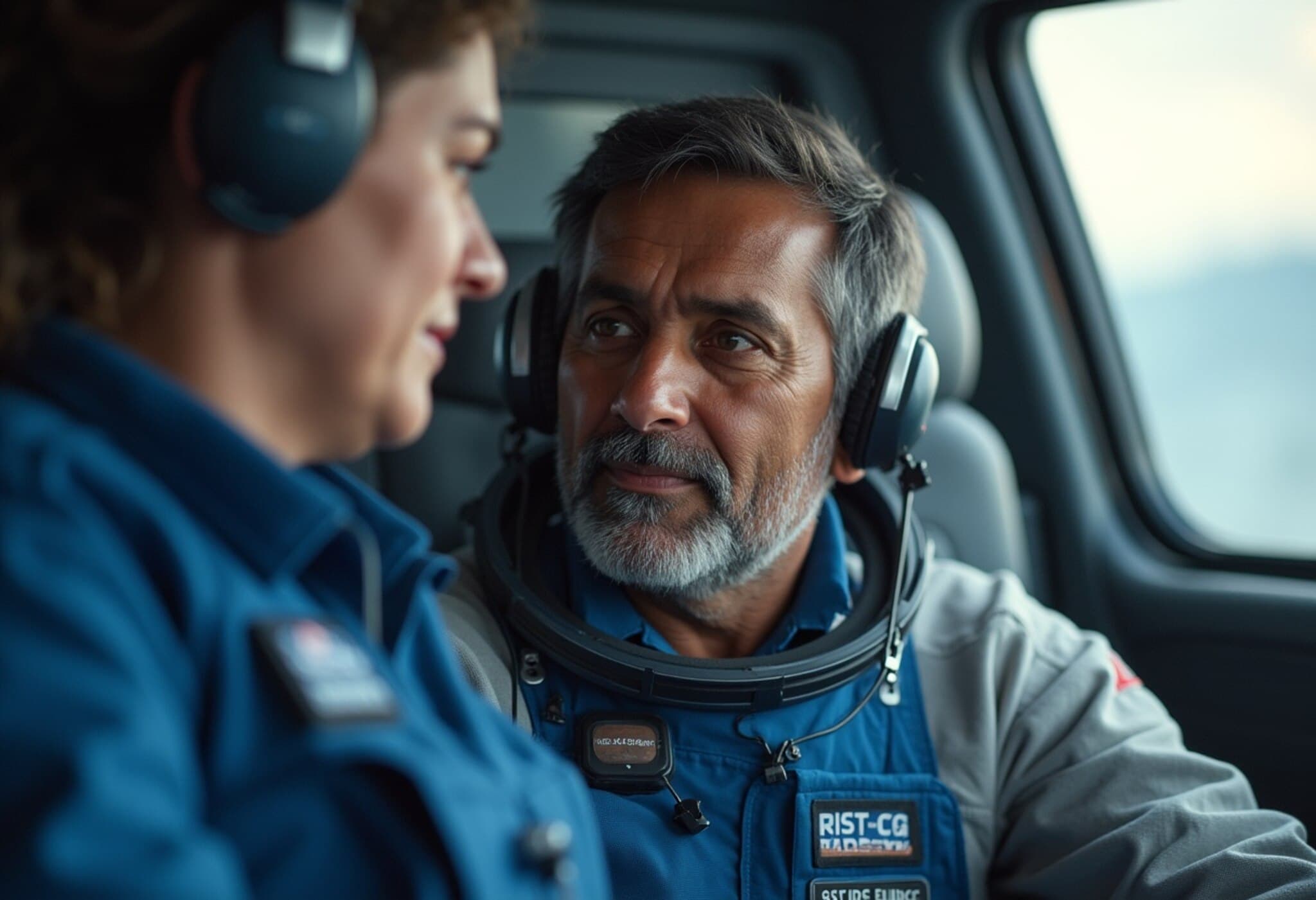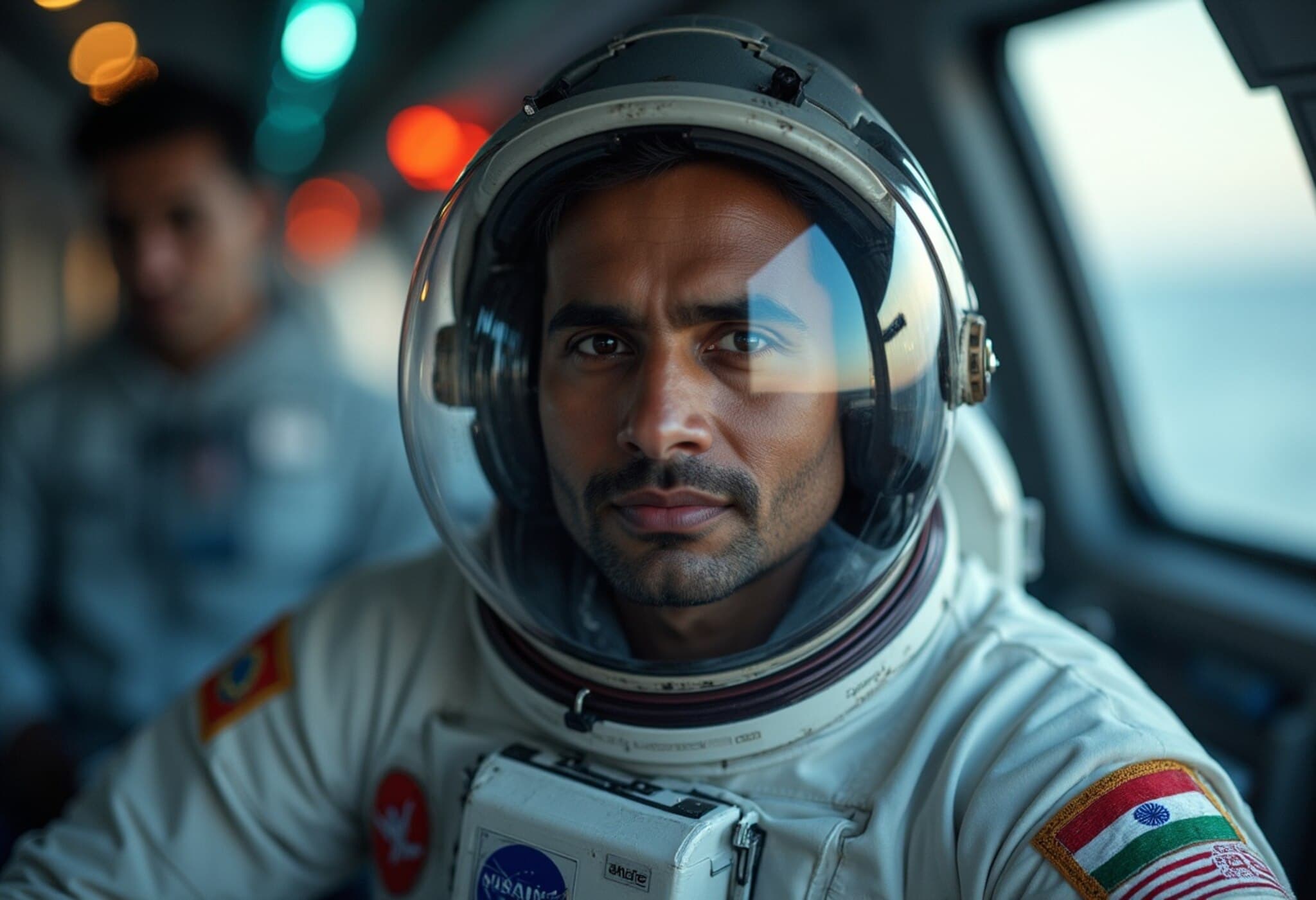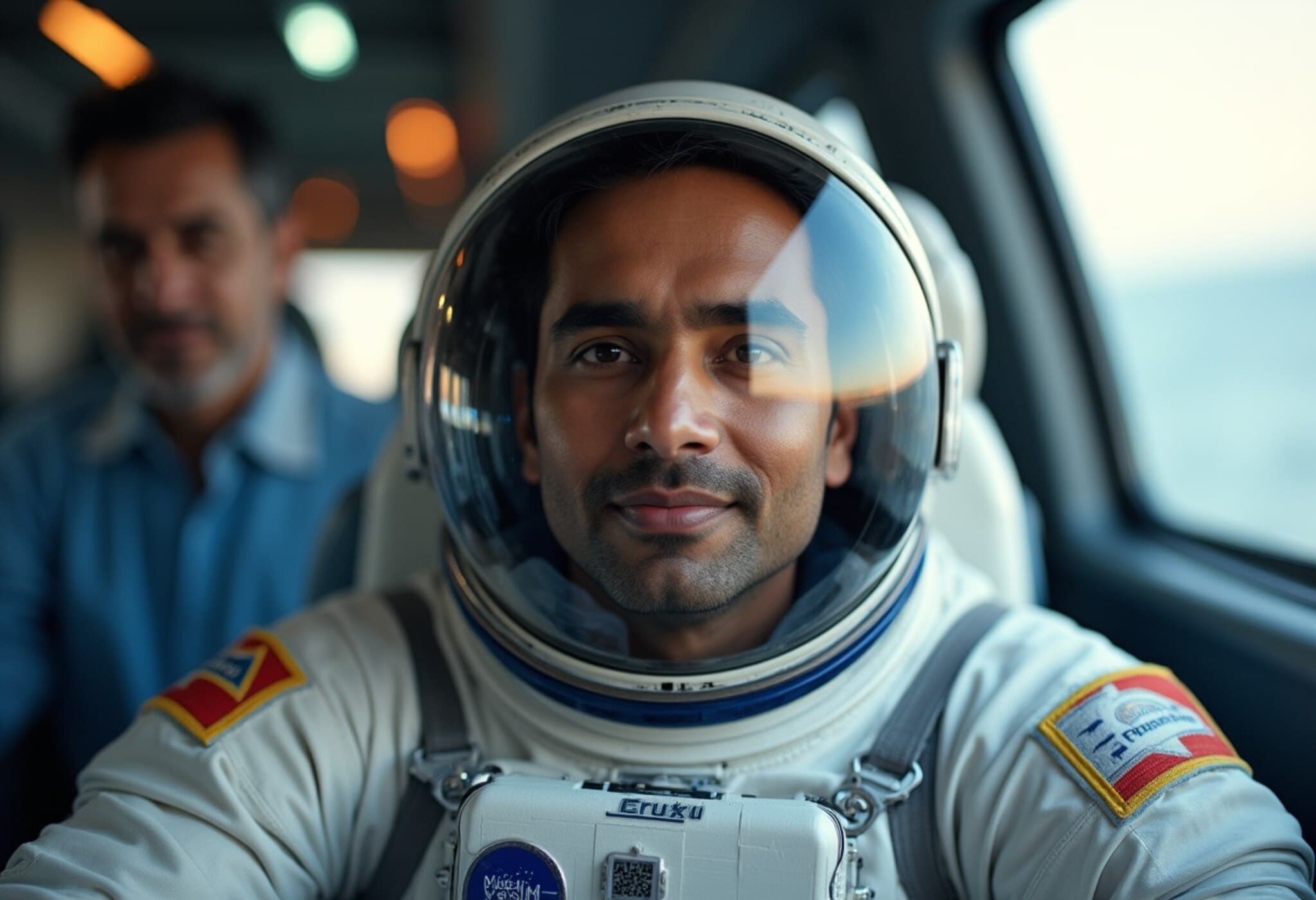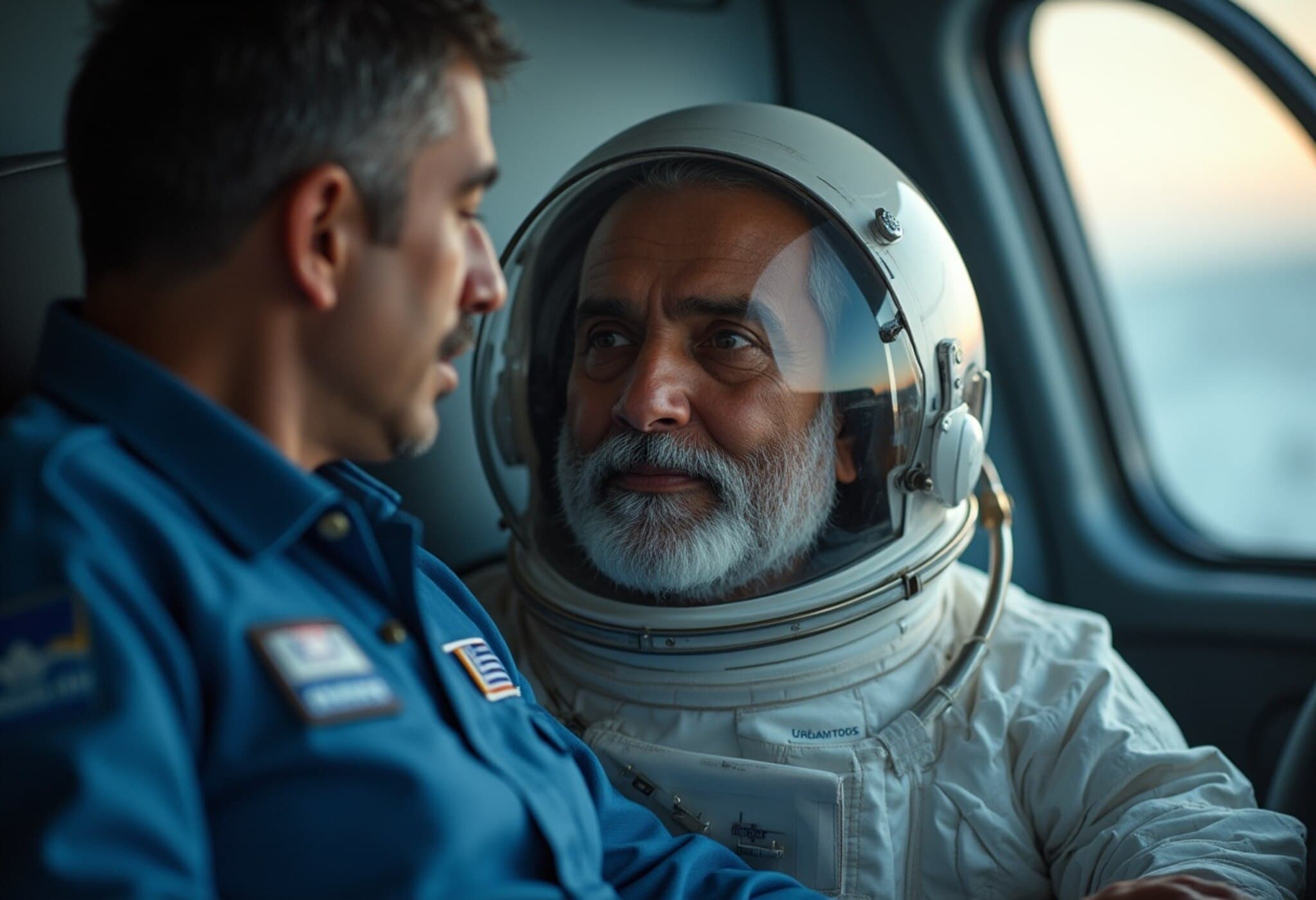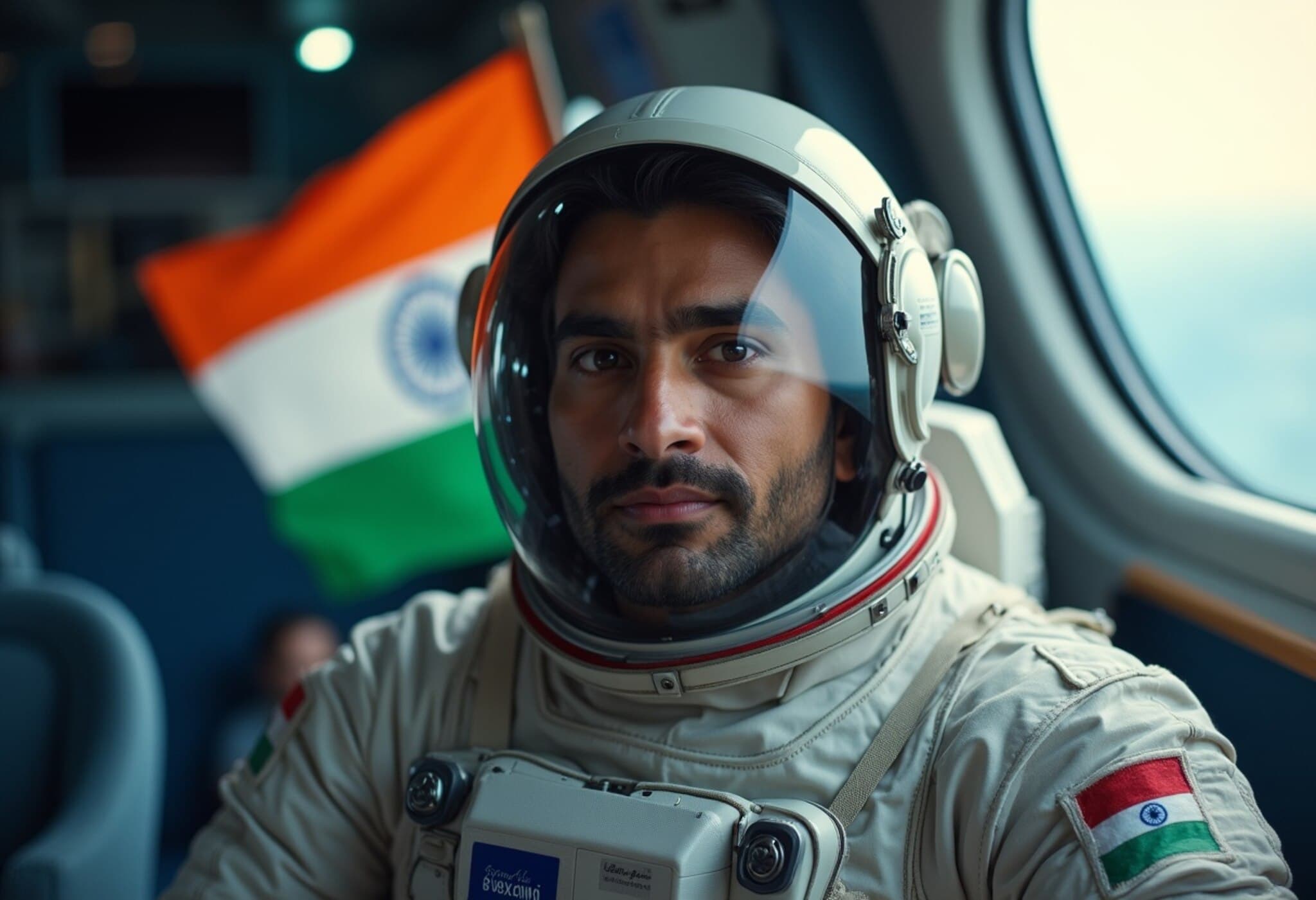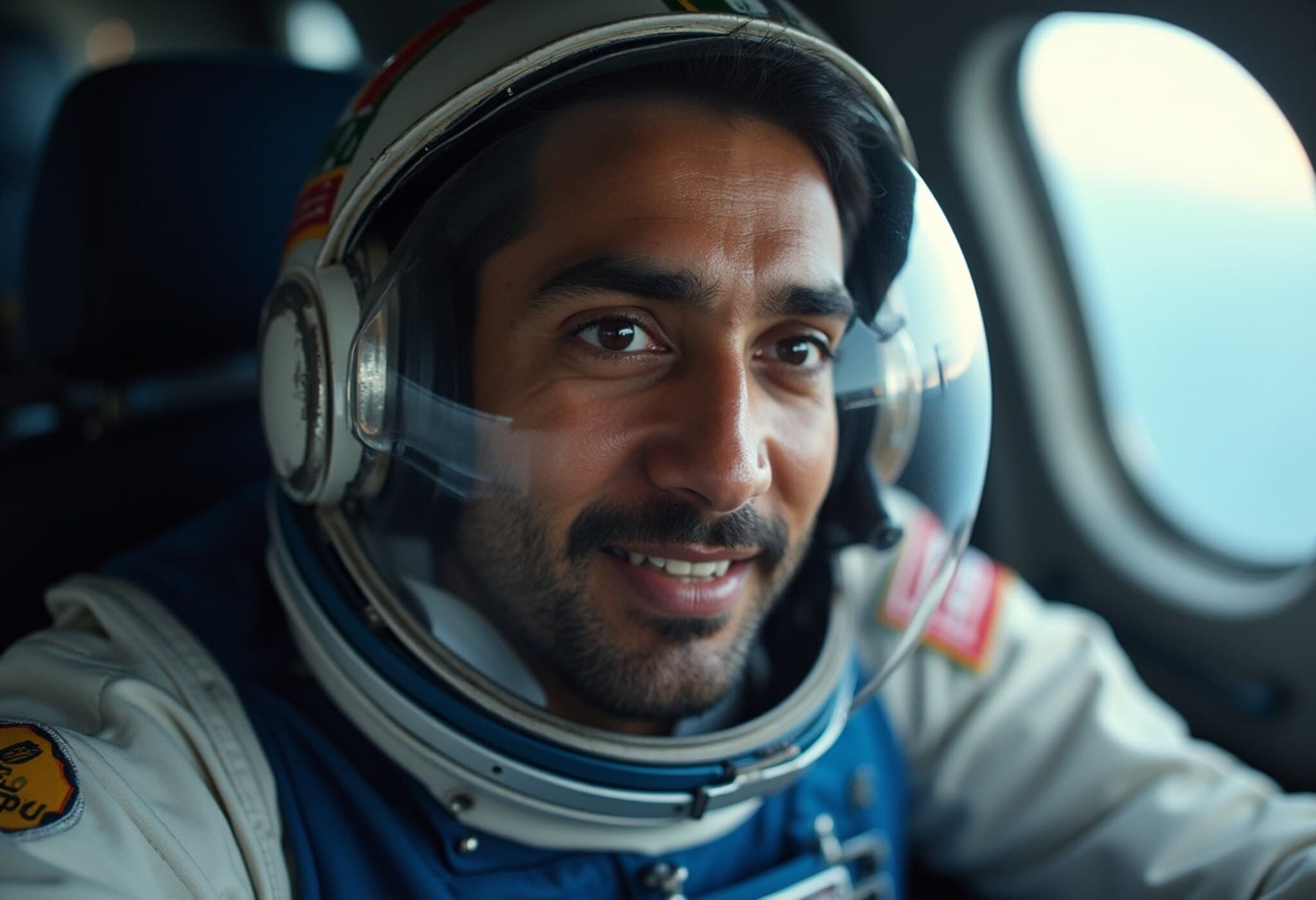Axiom-4 Mission Returns: Shubhanshu Shukla’s Historic Splashdown Off California Coast
On Tuesday afternoon, Indian astronaut Group Captain Shubhanshu Shukla and the Axiom-4 (Ax-4) crew are set to make a dramatic return to Earth with a splashdown off the coast of California, marking the successful conclusion of their groundbreaking space mission. This event comes shortly after their Dragon spacecraft, named Grace, undocked from the International Space Station (ISS) on Sunday, July 14th, beginning its journey back to Earth.
Impressive Journey: Over 310 Orbits and 13 Million Kilometers Travelled
During their 21-day stay on the ISS, the Ax-4 crew orbited Earth more than 310 times, covering a staggering distance of approximately 13 million kilometers (about 1.3 crore kilometers). To put it in perspective, this is nearly 33 times the distance from Earth to the Moon, underscoring the mission’s extended duration and scope.
"Dragon and the Ax-4 crew are on track to reenter Earth's atmosphere and safely splash down off San Diego at approximately 2:31 a.m. Pacific Time," announced SpaceX. "The arrival will be heralded by a brief sonic boom as the capsule reenters the atmosphere."
Careful Splashdown and Post-Landing Protocols
- After the de-orbit burn, the Dragon capsule will deploy drogue parachutes at around 50 minutes, followed closely by its main parachutes.
- It will splash down in the Pacific Ocean near San Diego, where recovery teams will execute swift safety checks and hydraulically lift the capsule onto the recovery vessel.
- Upon retrieval, the crew will receive immediate medical assessments before being flown by helicopter to land-based facilities for comprehensive health evaluations and mission debriefings.
Scientific Endeavors Amidst Microgravity
During their time on the ISS, Shukla and his colleagues engaged in several vital scientific experiments:
- Muscle Degradation Studies: Using the Life Sciences Glovebox (LSG), Shukla researched biological pathways responsible for skeletal muscle loss in microgravity—a critical issue for long-duration spaceflight.
- Brain Circulation Research: The crew examined how blood flow operates in the brain under zero gravity, providing insights into astronaut health and neurophysiology.
- Neuro Motion VR Project: Wearing virtual reality headsets coupled with functional near-infrared spectroscopy (fNIRS), astronauts performed attention-centric tasks while their brain activity was monitored—a pioneering step toward enhancing cognitive performance in space.
- Space Microalgae Experiment: Shukla sampled and documented algae strains to understand how microscopic life adapts beyond Earth.
- PhotonGrav Brain-Computer Interface: By utilizing a specialized headset tracking cerebral blood flow, this project explores the fascinating possibility of controlling computer systems through thought—critical technology for future human-machine interfacing in space and on Earth.
Expert Analysis: Why the Axiom-4 Mission Matters
The Axiom-4 mission showcases a significant leap in commercial and international space collaboration. With private enterprises like Axiom Space partnering closely with NASA and leveraging SpaceX technology, missions like these are paving the way for routine human presence in low Earth orbit.
From a strategic standpoint, Shukla’s involvement shines a spotlight on India’s growing footprint in space exploration, increasing the nation’s prestige and participation in global space endeavors. Additionally, the life science research conducted lays a foundation for future deep-space missions, addressing health challenges faced in microgravity.
Looking Ahead: What This Means for Space Exploration
The successful completion and safe return of the Ax-4 crew highlight the maturation of private spaceflight capabilities, reducing costs and democratizing access to space. These advancements are crucial as humanity prepares for ambitious missions to the Moon, Mars, and beyond.
Moreover, the scientific data gleaned on cognitive function, muscle loss, and biological processes in space contributes valuable knowledge that benefits both astronaut health and terrestrial medical science.
Editor’s Note
The Axiom-4 mission not only marks a milestone for private spaceflight but also reaffirms the importance of international cooperation and scientific inquiry in orbit. As Shubhanshu Shukla and his team conclude their journey, we are reminded of the extraordinary human drive to explore, understand, and push the boundaries of what is possible.
As commercial space travel becomes more routine, key questions arise: How will regulatory frameworks evolve to govern private missions? How can space science be made more inclusive, benefiting countries with emerging space programs? And critically, how will lessons learned in microgravity help solve pressing health challenges on Earth?
Keep a close eye on this story as we continue to follow the crew’s recovery and the groundbreaking research that’s sure to impact the future of space exploration and human medicine.


